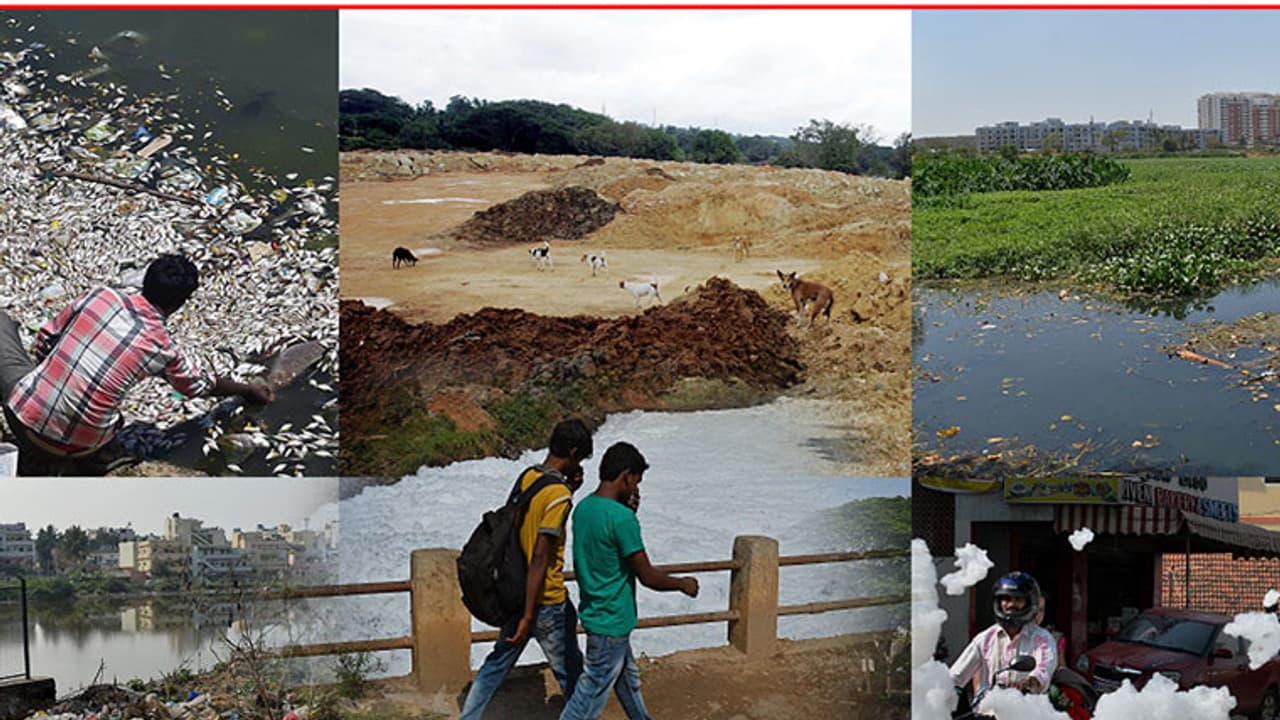The KSPCB has sent notices to all industries, asking them how they are managing industrial waste. Activists and scientists say pollution levels have already caused large damage.

Days after the National Green Tribunal ordered the BBMP to stop industrial effluents and sewage in Bellandur Lake, the Karnataka State Pollution Control Board (KSPCB) Chairperson has decided to use the same order to slap notices against all the industries surrounding Bengaluru lakes and the canals.
Speaking to Asianet Newsable, Lakshman, Chairman KSPCB, said there had been worse complaints in other lakes of Bengaluru where industrial effluents are being let into.
"The NGT has clearly mentioned that lakes should be free from sewage and industrial effluents and hence we will also replicate the same order on industries in Bengaluru South, North and East," said Lakshman.
Welcoming the decision of the KSPCB on the issue, lake activists and scientist say the decision is right, but the KSPCB should also shut industries if they fail to send their industrial waste to treatment plants.
"Harmful enzymes are found in lakes at Hebbagudi, Kammasandra and Bommasandra lake in Bengaluru South and Narsappanahalli, Chikkabanavara and Doddabidrikallu lake in Bengaluru North and Yellemallappa Shetty lake in Bengaluru East are victims of industrial effluents.
KSPCB should not only send notices but should give time to set up effluent treatment plants and shut down industries that fail to stop sending the waste into lakes," said Ram Prasad, Convenor, Friends of Lakes.
He pointed that private effluent treatment plants charge Rs 6 per litre to collect industrial waste. Many industries, which produce over 1,000 litres of waste everyday, dump waste into lakes to save money.
Echoing similar sentiments, Promod Baliga, an industrialist from Peenya says the Peenya industrial area has over 500 industries, and most of the waste was ending up in the lakes.
"We can tell from the smell that chemical content is in the lake Most of the industries that have galvanising units have purposely housed themselves close to lake beds as they can easily release the waste into the lake. The KSPCB should mercilessly shut such industries,"
Dr Phani Kumar Pullela, Professor and HoD, Department of Chemistry, CMRIT opined that in the long run, water consumption from bore-wells in these polluted lakes would result in 'endocrine disturbance' in the human body.
Such disturbances can cause the extra growth of limbs in newborns, heart problems or faces turning blue or green. "All this is because of harmful chemical mixing up with underground water," he said.
Priyanka Jamwal, Senior Scientist from ATREE who found harmful chemicals from streams in Peenya industrial areas, says, the KSPCB has to ensure the strict implementation of the order and night vigilance should be put in place as industries are releasing the waste during night times.
